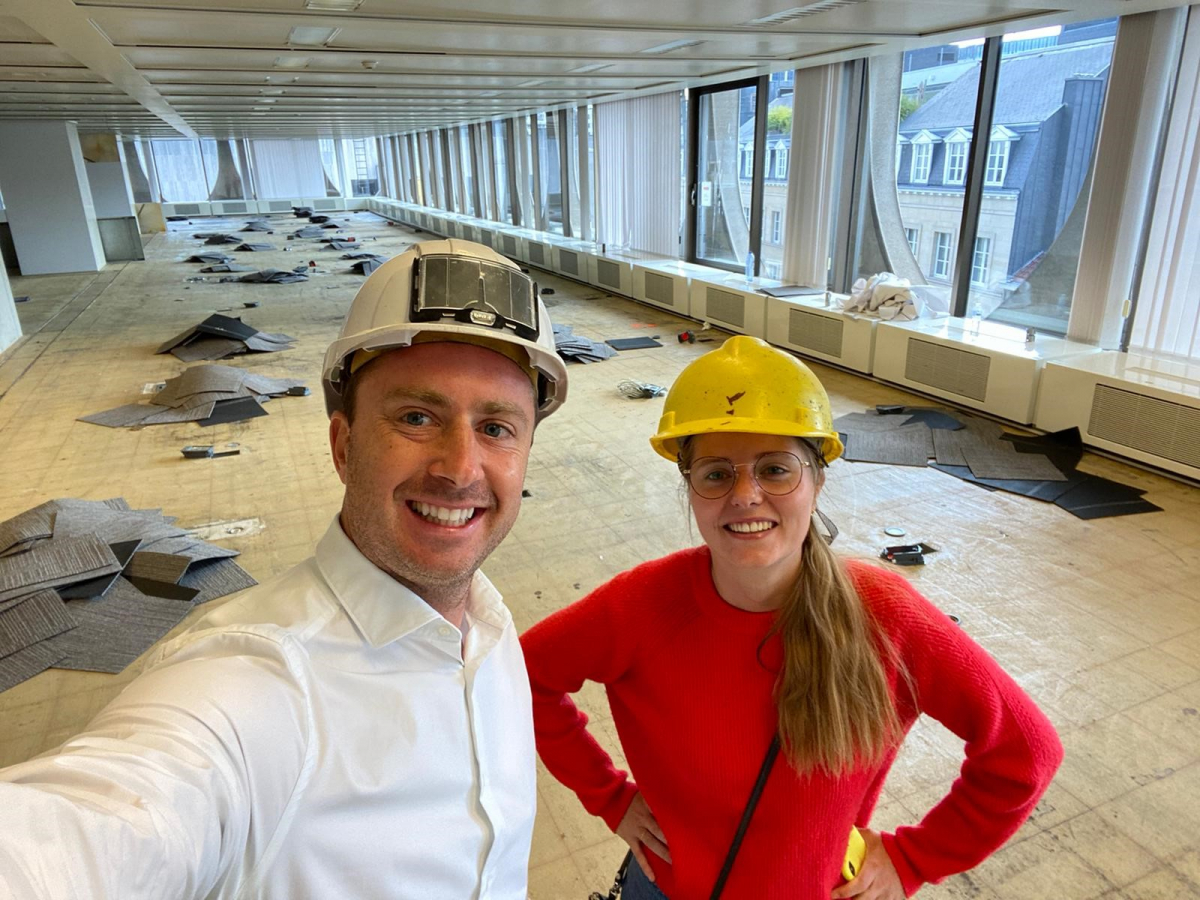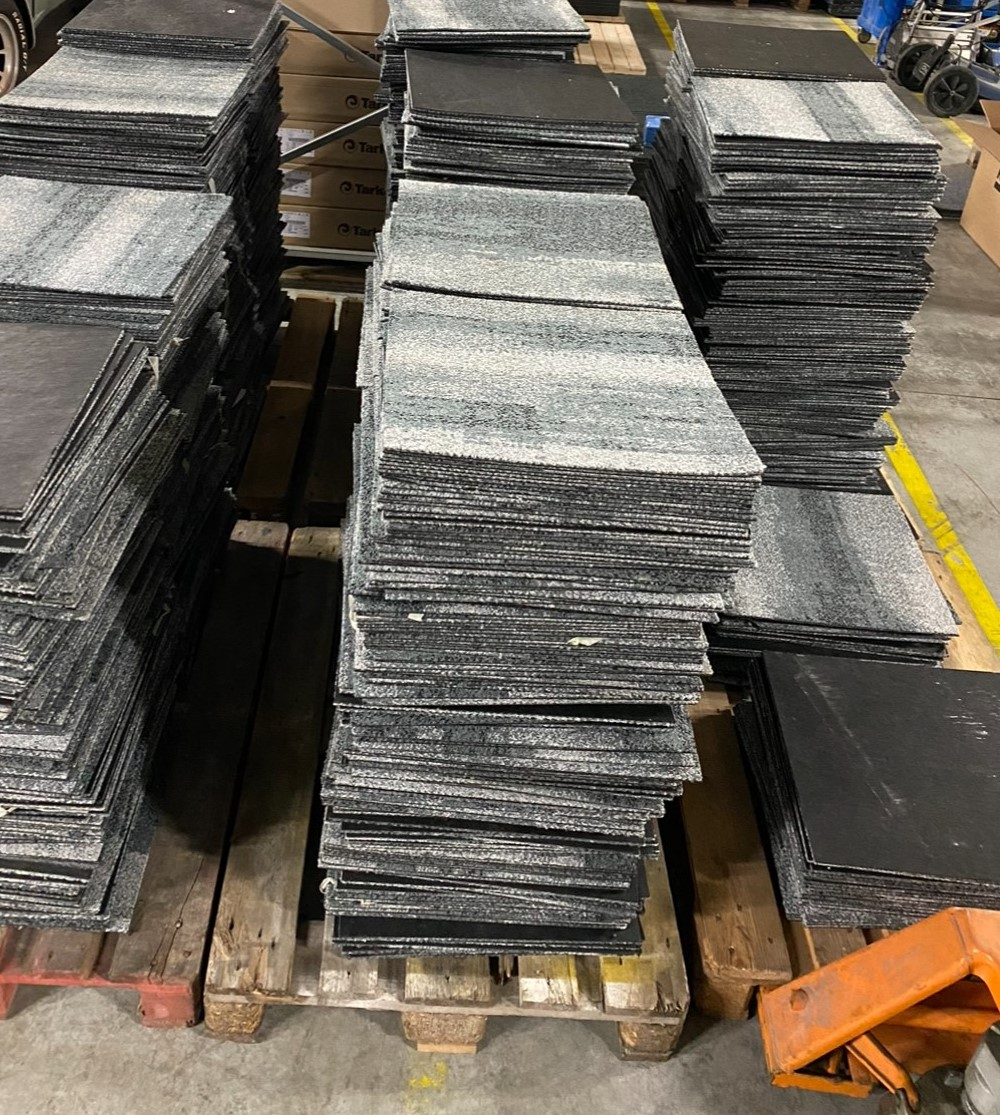
Based in Wavre, Composil specializes in carpet cleaning and maintenance. For the past few years, Composil has been developing a second-hand carpet tile offering. The goal? To become a company with a real impact on sustainability in Europe. We spoke with Jean Minne, Composil's CEO for the past 10 years.
Composil is a Walloon company based in Wavre, specializing in carpet maintenance and has been developing a second-hand carpet offering for a few years. Today, the company aims to further expand internationally.
Composil, a company with around thirty years of history, is currently experiencing its third phase of growth. Founded in 1992, Composil initially aimed to distribute and apply a protective treatment to carpets. “From the beginning, our first stakeholders were the carpet manufacturers themselves. The founder, Tanguy Massange, thought that while protecting carpets was good, they also needed to be cleaned. So, he sought advice from carpet manufacturers. The usual carpet cleaning process tends to damage them because it involves using a lot of water and chemicals, typically through injection and extraction, a method that mechanically tends to damage the fibers,” explains Jean Minne, who has led Composil for about a decade.

“It was by listening to carpet manufacturers that we developed a methodology that respects the fibers. We quickly moved on to the second phase of Composil's history, transitioning from protective treatments to cleaning and maintenance. Even then, there was already some focus on sustainability to extend a carpet's lifespan,” our interviewee highlights.
Then came Covid. The company’s activities came to a near standstill as its clients, including businesses and hotels, were under lockdown. This gave Jean Minne and his team an opportunity to think about the company's future. “There was a significant reassessment. We decided to make sustainability the central pillar of the company. This pushed us to think about having a real impact in the real estate and construction sectors,” he explains. Composil is now entering its third phase, creating a branch for recycling and reusing carpets.
“Until then, carpets were sent to incinerators. We decided to change this approach. We developed a circular solution. When a carpet is removed, we analyze each tile, identify the reusable ones, process them, and add them to our stock. Those that are too worn or damaged go to recycling at a partner company, Tarkett, in Dendermonde—a flooring manufacturer with a recycling line that separates the fibers from the backing. The fiber is returned to fiber manufacturers for restoration and reuse. As for the backing, it is depolymerized and repolymerized,” details Jean Minne.
In total, Composil has already reused and recycled 250,000 square meters of carpets in Belgium and abroad within a year and a half. To encourage customers to use second-hand carpet tiles, the price is half that of new tiles. “This motivates some to contribute to sustainable development, even if it's not their primary motivation.”
Towards Internationalization
Already present in Luxembourg and France, Composil aims to expand further by establishing a franchise system. “With the regulations stemming from the Green Deal, especially in Europe, we see that changes are happening in many countries. We have already sold carpet tiles in regions where we do not have a presence. Even if there are gaps in our coverage, some markets are philosophically ready. By that, I mean there is a basic awareness of sustainability. This is why we participated in the economic mission to Norway last June. We observed that the Norwegian market is ready,” continues Jean Minne.

For Composil's CEO, a franchisee will become an ambassador for the brand. “We strongly believe that local entrepreneurs, who know their market, will be able to develop the Composil solution much faster than we could,” he notes. While Composil is not setting any boundaries, the company is initially targeting the European market, where carpets are more prevalent. “We are targeting markets that are philosophically ready. We're thinking of France, Switzerland, the Nordic countries, and even the UK.”
With this international expansion, the goal is to seek out sources of carpet that could replenish the stock of second-hand tiles and expand the offering for customers. “We are convinced that the more places we have a presence, the more quality sources we will have to offer for sale, and the more places we will have to distribute our stock,” concludes Jean Minne.
Isabelle Anneet (AWEX)







